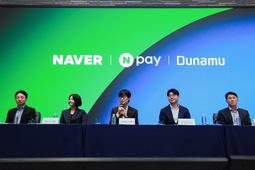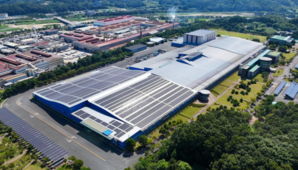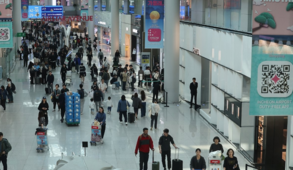
[News Space=Reporter seungwon lee] Amway Korea (CEO Shin Eun-ja) saw a slight decrease in sales last year, while its operating profit and net profit decreased significantly. In particular, despite the decrease in profits over the past three years, it paid out a whopping dividend of over 200 billion won.
In addition, Amway India is being accused of ‘pyramid fraud’ and ‘creation of criminal proceeds’. As this is an incident in an Asian country, it is expected to have an impact on countries in the Asia-Pacific region, including Korea.
According to the audit report of the Financial Supervisory Service's electronic disclosure system on the 11th, Amway Korea's sales in 2024 will be 704 billion won, a 6.5% decrease from the previous year (753.1 billion won). This is the second consecutive year of decline following a 7.5% decrease in 2023.
Operating profit was 35.1 billion won, a sharp 54.5% drop from the previous year (77.2 billion won). Operating profit has been on a downward slope for three years, from 99.4 billion won in 2022, 77.2 billion won in 2023, to 35.1 billion won in 2024.
Net income also fell 56.8% to KRW 27.1 billion from KRW 62.8 billion the previous year. Net income is also expected to plummet from KRW 85 billion in 2022 to KRW 62.8 billion in 2023 and KRW 27.1 billion in 2024.
As its performance has plummeted in recent years, Amway Korea has ousted former CEO Bae Soo-jung, whose term expired in 2026, and appointed Shin Eun-ja, its chief marketing officer (CMO), and American John Patrick Parker as new co-CEOs in October 2024.
Analyzing the cost structure, sales and administrative expenses decreased by 1.1% year-on-year to KRW 245.8 billion. Salary expenses were KRW 43 billion (up 10.9% year-on-year from KRW 38.8 billion), payment commissions were KRW 52.6 billion (logistics and IT service costs for partners), and KRW 11.5 billion in technology introduction fees under the name of royalty were paid to the parent company affiliate (Access Business Group International LLC).
Special related party transactions are noteworthy. 358 billion won, or 50.8% of sales, was procured from affiliates of the parent company (e.g. Access Business Group International LLC). The transaction volume between affiliates, including technology introduction fees and payment commissions, was calculated to be a total of 52.7 billion won.
As of 2024, dividends have not been paid, and retained earnings increased by 36.8% to KRW 100.8 billion from KRW 73.7 billion the previous year.
Amway Korea paid dividends of 48.1 billion won in 2021, 71.3 billion won in 2022, and 85.1 billion won in 2023. Even in 2021-2023, when profits were declining, it paid a whopping dividend of over 200 billion won.
A corporate finance analysis expert explained, "Korea Amway relies heavily on related party transactions, procuring more than half of its sales from affiliates and paying significant commissions and technology introduction fees." He added, "Since it is difficult to secure an independent supply chain, this could lead to weakened price negotiation power and increased risk in the event of external environmental changes."
He also added, "Since technology introduction fees and commissions are structured to increase in line with performance, there is a possibility that this will put pressure on the company's profitability," and "In addition, the company has been paying high dividends, exceeding 200 billion won over the past three years."
Not only Amway Korea, but also global sales have decreased by 5% to $7.7 billion as of 2023, which is more serious as it is an extension of the sales decline trend that has continued for more than 10 years.
In India in particular, Amway is under investigation for alleged pyramid schemes, with claims of $490 billion in “criminal proceeds.” This has led India’s Enforcement Directorate (ED) to seize $75.7 billion worth of assets and is also investigating $290 billion that was transferred to foreign accounts.
This incident could have a negative impact on Amway's brand image and sales in Asia.
A corporate finance analysis expert emphasized, "Regulations on multi-level marketing companies are being strengthened worldwide, and Amway's business model is being criticized in some countries." He added, "In India in particular, distrust of multi-level marketing and pyramid schemes is increasing due to revisions to consumer protection laws, so it is expected that Korea, which operates based on the multi-level marketing model, will also be affected."
The Enforcement Directorate (ED) of India said, "Amway India operated a cash-flow structure that relied on recruiting new members under the guise of selling products, generating a huge criminal proceeds of over Rs 4,000 crore." It said, "The focus was on recruiting members rather than selling products, and the structure was such that only the upper echelons benefited."
In addition, a lease agreement was signed with Korea Downtown Airport Asset Management Co., Ltd. for the Seoul office (517 Yeongdong-daero, Gangnam-gu, Seoul, ASEM Tower, Samseong-dong), and KRW 3.258 billion (KRW 3.148 billion the previous year) was paid as a lease deposit.
In addition, a rental deposit of 13.534 billion won was paid in relation to the rental of Amway Plaza and Amway Brand Center. Also, the rent last year was 8.444 billion won.
Debt ratio improved to 180.5% (234.3% in the previous year). Current ratio (current liabilities of 218.2 billion won) was 113.9%. Cash assets decreased to 42.2 billion won from 49.3 billion won in the previous year. Return reserve liabilities also increased compared to the previous year (780 million won → 860 million won), which may be due to a decrease in consumer satisfaction or product quality issues.
Meanwhile, Amway Korea is a Korean subsidiary of Amway Europe Limited, established in 1988, focusing on multi-level sales of health supplements, water purifiers, and cosmetics. After several rounds of paid-in capital increases, its current capital is 21.784 billion won.
























































